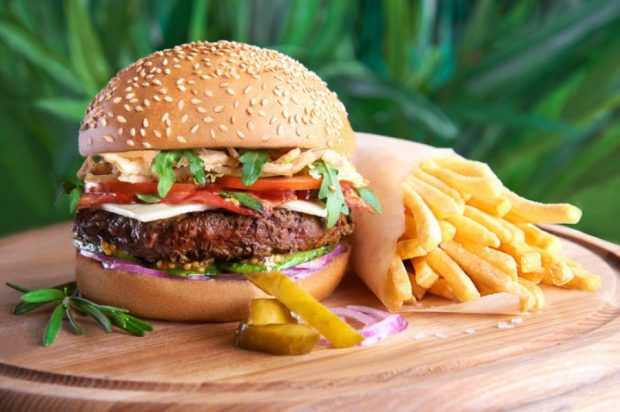
Comfort food leads to more weight gain during stress: Study
Team Udayavani, Apr 28, 2019, 4:15 PM IST

Image for Representation
Melbourne: Indulging in high-calorie ‘comfort’ foods when you are stressed can lead to more weight gain than usual, scientists say.
Researchers from the Garvan Institute of Medical Research in Australia discovered a molecular pathway in the brain, controlled by insulin, which drives the additional weight gain.
Using an animal model, the team showed that a high-calorie diet when combined with stress resulted in more weight gain than the same diet caused in a stress-free environment.
“This study indicates that we have to be much more conscious about what we’re eating when we’re stressed, to avoid a faster development of obesity,” said Herbert Herzog, who led the study.
Some individuals eat less when they’re stressed, but most will increase their food intake — and crucially, the intake of calorie-dense food high in sugar and fat.
To understand what controls this ‘stress eating’, the team investigated different areas of the brain in mice.
While food intake is mainly controlled by a part of the brain called the hypothalamus, another part of the brain — the amygdala — processes emotional responses, including anxiety.
“Our study showed that when stressed over an extended period and high calorie food was available, mice became obese more quickly than those that consumed the same high fat food in a stress-free environment,” said Kenny Chi Kin Ip, lead author of the study published in the journal Cell Metabolism.
At the centre of this weight gain, the scientists discovered, was a molecule called NPY, which the brain produces naturally in response to stress to stimulate eating in humans as well as mice.
“We discovered that when we switched off the production of NPY in the amygdala weight gain was reduced. Without NPY, the weight gain on a high-fat diet with stress was the same as weight gain in the stress-free environment,” said Ip.
“This shows a clear link between stress, obesity and NPY,” he said.
To understand what might control the NPY boost under stress, the scientists analysed the nerve cells that produced NPY in the amygdala and found they had receptors, or ‘docking stations’, for insulin — one of the hormones which control our food intake.
Under normal conditions, the body produces insulin just after a meal, which helps cells absorb glucose from the blood and sends a ‘stop eating’ signal to the hypothalamus feeding centre of the brain.
In the study, the scientists discovered that chronic stress alone raised the blood insulin levels only slightly, but in combination with a high-calorie diet, the insulin levels were 10 times higher than mice that were stress-free and received a normal diet.
The study showed that these prolonged, high levels of insulin in the amygdala caused the nerve cells to become desensitised to insulin, which stopped them from detecting insulin altogether.
In turn, these desensitised nerve cells boosted their NPY levels, which both promoted eating and reduced the bodies’ normal response to burn energy through heat, the study showed.
“Our findings revealed a vicious cycle, where chronic, high insulin levels driven by stress and a high-calorie diet promoted more and more eating,” said Herzog.
“This really reinforced the idea that while it’s bad to eat junk food, eating high-calorie foods under stress is a double whammy that drives obesity,” he added.
Udayavani is now on Telegram. Click here to join our channel and stay updated with the latest news.
Top News
Related Articles More

Study examines genetic basis for blood pressure, risk for hypertension

Why not detect sex of foetus, then protect girl child: IMA chief Asokan

Include 4 hrs of physical activity, 8 hrs sleep in routine for optimal health, suggests study

Traffic noise can increase risk of cardiovascular disease: Study

Nearsightedness is at epidemic levels – and the problem begins in childhood
MUST WATCH
Latest Additions

If JDS & BJP leaders respect women, they should visit sexual abuse victims: Dy CM Shivakumar

Mayank Yadav doubtful for remainder of IPL 2024; All set to get BCCI contract

Hindu marriage not valid unless performed with requisite ceremonies: SC

PM adopting vengeful attitude for questioning BJP on ‘conspiracy’ to scrap quotas: Revanth Reddy

Sena vs Sena contest set to play out in three Mumbai Lok Sabha seats
























